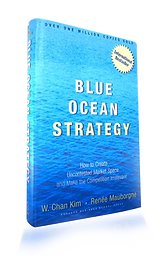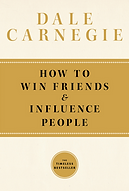top of page
VietEdu
Education Information

List:
What are the seven habits
that distinguish highly effective people?
Introduction
“The Seven Habits of Highly Effective People”, by Stephen Covey, is the title of one of the best selling books of the last few years. It is about personal leadership, from which can follow leadership of others.
Covey's work on the seven habits began with a review of “success” literature going back over 200 years. He identified a shift over the last fifty years away from a concentration on character and core values, what he calls the Character Ethic, towards a concentration on behaviour and actions, what he calls the Personality Ethic.
Covey’s research led him to propose an approach to successful management called Principle-Centred Leadership and to successful life called Principle-Centred Living. His belief is that we cannot become more successful or better people just by changing our outward behaviour or attitudes. We first have to address our principles, the way we see things in the world around us, our perceptions of others. We will then start behaving towards others in a way that is consistent with those principles.
Covey argues that the principles we should adopt are timeless principles that underpin all civilisations, communities, religions and ethical systems. He lists principles such as fairness, integrity, honesty, human dignity, service, quality, excellence, potential, growth, patience, nurturance and encouragement.
Covey’s seven habits describe a way of thinking, living and doing that is consistent with these principles. The habits take considerable commitment to achieve. We first have to break old habits and adopt new ones. Covey suggests we work at the seven habits in order as they follow what he calls the maturity continuum, dealing first with dependence, then independence and finally interdependence.
The Seven Habits
1. Be proactive
This habit is about taking control of our lives. It involves :
-
Not allowing our lives to be shaped by other determining factors
-
Accepting responsibility for our actions and for what happens to us
-
Making our own decisions
-
Choosing our response to our circumstances
-
Not seeing our selves as passive victims in others’ games.
2. Begin with the end in mind
The second of the seven habits is about having clear goals, based upon principles and what we want to be. Covey suggests two ways of clarifying these issues. First, by considering what we would want people to say about us at our funeral. Secondly, by developing a personal mission statement that clarifies what we want our lives to be about.
3. Put first things first
This habit is about having clear priorities, and spending our time and resources in a manner consistent with those priorities. To help us focus on these priorities, Covey challenges us to identify the one thing that we are not doing now that if we did it on a regular basis, would make a tremendous positive difference to our lives.
Covey suggests we should devote our time and energies to those important things that contribute towards achieving our goals, rather than reacting to the urgent things arise from short-term emergencies.
4. Think win / win
The fourth habit in Covey's list of seven habits is about cooperation rather than competition. While recognising that competition in the market - and between teams - is important, competition within teams or between individuals working to achieve a common goal can be counterproductive.
This habit is about achieving mutual benefit for all parties involved. This achieves shared commitment to an agreed course of action, as opposed to resistance and resentment from the loser. Much management thinking is now built on this principle and supply chain management is finding the benefits of this approach.
5. Seek first to understand … then to be understood
This habit is about the quality of the communication process between two parties. Active listening is about searching for meaning, gathering and clarifying information to develop an understanding from the other’s point of view. Only then can we communicate our thinking and ideas in a way that is likely to be accepted by the other.
Just as doctors have to diagnose (listen) before they can prescribe (propose) so we must understand another person’s point before we can suggest a way forward. This is the art of successful selling and well as getting the best out of others.
6. Synergise
This habit is about valuing and building on differences for ultimate benefit of all. Synergy means that the whole is greater than the sum of its parts.
In a meal we do not eat each food type separately, all of one followed by all of the next. We mix foods up and create new flavours. A successful football team is not made up of players with the same strengths. It comprises people of complementary strengths who support each other.
In both examples, the whole is greater than the sum of its parts. Something new and unique is created from the interaction of the components. To achieve this, we have to be open to new ideas and new contributions emerging from diverse sources.
7. Sharpen the saw
The last of the seven habits is about taking time to attend to our self. It involves not being so engrossed in day-to-day activities that we lose sight of the need to replenish our personal resources. It is concerned not just with physical resources but also with our whole being. It is about not driving ourselves so hard that our future ability to live is compromised.
In Covey’s terms, this seventh habit is about making the others possible.
Developing the Seven Habits
Consistent with Covey's view, I believe that the habits have to come out of our personal principles. From that we can change our own behaviour. Others are then more likely to follow us. I have certainly taken on board the seven habits myself and they feature very strongly in my thinking and in my approach to life and to leadership.
I have built many training programmes around the Seven Habits, using them to underpin leadership and other related content. If you would like to discuss developing a training programme - that uses the seven habits - for you and your organisation, please contact me .
Reference
Covey, S.R. (1989) “The Seven Habits of Highly Effective People”, Simon & Schuster, London.
habita
blue ocean strategy
Companies have long engaged in head-to-head competition in search of sustained, profitable growth. Yet in today’s overcrowded industries, battling head-on results in nothing but a bloody “red ocean” of rivals fighting over a shrinking profit pool.Based on a study of 150 strategic moves spanning more than a hundred years and thirty industries, W. Chan Kim and Renée Mauborgne show that tomorrow’s leading companies will succeed not by battling competitors, but by systematically creating “blue oceans” of uncontested market space ripe for growth.
Blue Ocean Strategy presents a proven analytical framework and the tools for successfully creating and capturing blue oceans. Upending traditional thinking about strategy, this landmark book charts a bold new path to winning the future.
How to Create Uncontested Market Space
and Make the Competition Irrelevant

influence people
How to Win Friends and Influence People
YOU CAN GO AFTER THE JOB YOU WANT...AND GET IT! YOU CAN TAKE THE JOB YOU HAVE...AND IMPROVE IT! YOU CAN TAKE ANY SITUATION YOU'RE IN...AND MAKE IT WORK FOR YOU!
For more than sixty years the rock-solid, time-tested advice in this book has carried thousands of now famous people up the ladder of success in their business and personal lives. Now this previously revised and updated bestseller is available in trade paperback for the first time to help you achieve your maximum potential throughout the next century!
Learn:
-
THREE FUNDAMENTAL TECHNIQUES IN HANDLING PEOPLE
-
THE SIX WAYS TO MAKE PEOPLE LIKE YOU
-
THE TWELVE WAYS TO WIN PEOPLE TO YOUR WAY OF THINKING
-
THE NINE WAYS TO CHANGE PEOPLE WITHOUT AROUSING RESENTMENT

bottom of page